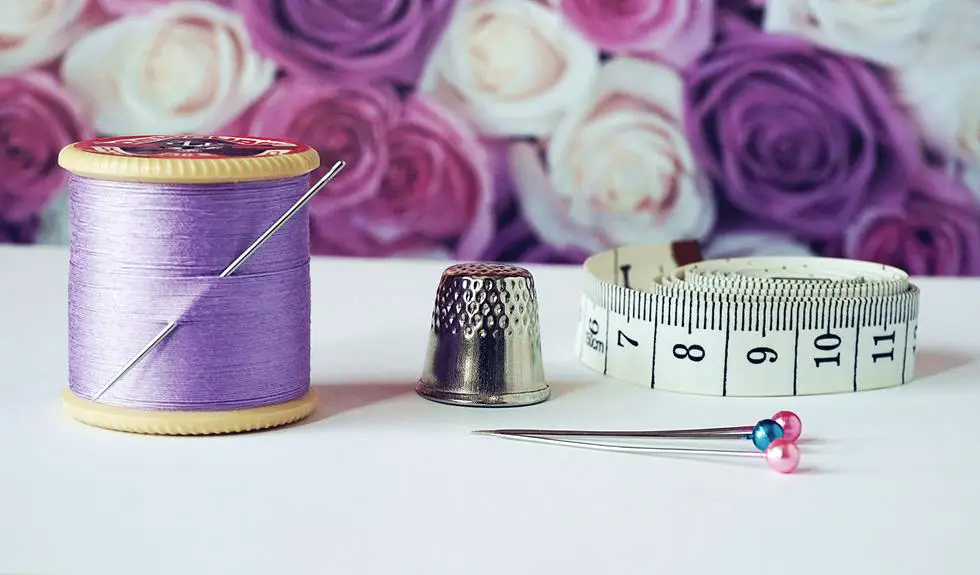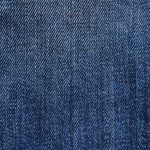When you're working with ring spun cotton, understanding the right sewing techniques can make a significant difference in your project's outcome. You'll want to start with choosing the right needle and thread, as these foundational elements set the tone for durability and finish. It's equally important to consider the stitch types you use and how adjusting your machine settings can elevate your work. Yet, even seasoned sewists can find themselves grappling with specific challenges in this versatile fabric. Curious about the nuances that will help you achieve a polished look?
Table of Contents
Understanding Ring Spun Cotton
Ring spun cotton is a type of fabric made from spinning fibers more tightly, which gives it a softer feel and greater durability. When you choose to work with ring spun cotton, you'll notice how it drapes beautifully and feels gentle against your skin. This fabric typically resists fraying and fading, making it ideal for items that will see frequent wear.
One of the key advantages of ring spun cotton is its breathability. Whether you're creating summer garments or cozy pajamas, the fabric allows air circulation, keeping you comfortable. Additionally, it's important to understand that ring spun cotton has a tighter weave, which makes it less prone to snagging and stretching out of shape.
When deciding on projects with ring spun cotton, consider its weight and texture. It's suitable for a variety of sewing applications, such as creating clothing, quilting, or crafting. Keep in mind, though, that prepping your fabric correctly will yield the best results. Pre-washing can help eliminate any shrinkage later on.
Embracing ring spun cotton in your sewing projects will enhance the overall quality and longevity of your finished pieces.
Choosing the Right Needle
When sewing with ring spun cotton, selecting the right needle is key to achieving a smooth and hassle-free stitching experience. The needle you choose can affect not only the quality of your seam but also how easily you work through multiple layers. Generally, a universal needle with a size of 80/12 works well for lightweight to medium-weight ring spun fabrics. However, if you're working with heavier cotton blends, consider using a larger needle, like a 90/14, to prevent breakage.
Here's a quick reference for choosing the right needle:
| Needle Type | Size | Best Use |
|---|---|---|
| Universal | 80/12 | Lightweight fabrics |
| Universal | 90/14 | Medium-weight fabrics |
| Denim | 90/14 | Heavier fabrics, multiple layers |
| Ballpoint | 75/11 | Knits and stretch fabrics |
Don't hesitate to experiment with different needle types and sizes to find the best match for your specific project. A proper needle will help you achieve the best results while working with your ring spun cotton!
Selecting Suitable Thread
To achieve optimal results in your sewing projects, selecting the right thread is essential for working with ring spun cotton. A good match enhances the fabric's natural qualities while ensuring durability.
For most projects, consider using cotton or polyester threads. Cotton thread closely resembles the texture of ring spun cotton, providing a seamless finish. It's also absorbent, which makes it great for any fabric dyeing processes you might undertake.
If you're looking for stronger seams, polyester thread is a solid alternative. It offers elasticity, allowing your seams to hold up better against wear.
When it comes to thread weight, opt for medium-weight threads, typically ranging from 40 to 50 weights. These options will complement your fabric effectively without overwhelming it.
Lastly, consider the color. Choose a thread shade that matches your ring spun cotton or one that provides a contrasting color for added visual interest. Always check that the thread unwinds smoothly from the spool to prevent tangling while you sew.
With these tips in mind, you'll be well-equipped to select the perfect thread, making your projects shine while maintaining the integrity of ring spun cotton.
Optimal Stitch Types
Choosing the right thread has set the stage for understanding which stitch types will work best with ring spun cotton to ensure strong, visually appealing seams.
For most projects, a straight stitch is your go-to. It offers durability while neatly securing the fabric edges. If you're working with thicker layers or need some stretch, a zigzag stitch provides both flexibility and strength, making it ideal for seams that require some give.
When you need to finish raw edges, consider using a serger with an overlock stitch. This will prevent fraying and give your pieces a professional look. A flatlock stitch can also be useful for projects where you're joining layers but want to maintain a flat finish—perfect for lightweight garments.
For decorative purposes, a satin stitch is great if you want to add embellishments, while a straight stretch stitch combines the benefits of a straight stitch with stretchability.
Remember to test your chosen stitch and thread combination on scrap fabric before diving into your actual project. This way, you can fine-tune your technique to achieve the best results with your ring spun cotton.
Adjusting Machine Settings
Adjusting your sewing machine settings ensures that you achieve the best results with ring spun cotton, enhancing both the quality of your seams and the overall finish of your project.
Start by setting your machine to a medium stitch length, around 2.5 to 3 mm. This length provides adequate hold without compromising the fabric's flexibility, which is important for ring spun cotton's softer texture.
Next, adjust the tension. Ring spun cotton typically requires a lower tension than other fabrics, so aim for a setting between 3 and 5. Test your tension on a fabric scrap to ensure the stitches aren't too tight or loose. You'll want a balanced seam that lays flat.
Additionally, use an appropriate needle—preferably a universal or a specific cotton needle in size 80/12. This needle type helps prevent fabric damage and ensures a smooth sewing process.
Frequently Asked Questions
Can I Use Ring Spun Cotton for Quilting Projects?
Yes, you can definitely use ring spun cotton for quilting projects. Its softness and durability make it a great choice, allowing your quilts to be comfortable and long-lasting. Just ensure you choose the right thread and needle!
Is Ring Spun Cotton Washable or Dry Clean Only?
Yes, you can wash ring spun cotton. It's durable and withstands machine washing well, ensuring you can enjoy your projects without worrying too much. Just follow care instructions for best results and to maintain quality.
How Does Ring Spun Cotton Compare to Other Cotton Types?
Ring spun cotton offers a softer feel and greater durability compared to other cotton types, making it an excellent choice for garments. You'll notice it's more breathable, providing comfort without sacrificing quality in everyday wear.
Can I Dye Ring Spun Cotton Fabrics Easily?
Yes, you can dye ring spun cotton fabrics easily. Just use fabric dye meant for cotton, follow the instructions, and you'll achieve vibrant colors. Make sure to wash it first for the best results.
What Types of Fabric Combinations Work Well With Ring Spun Cotton?
You'll find that ring spun cotton pairs well with fabrics like linen and polyester blends. These combinations enhance breathability and durability, making your projects more versatile and ensuring a comfortable fit for your designs.
- 15 Creative Projects You Can Make With Poly-Cotton Fabric - June 23, 2025
- The Cost-Effectiveness of Cotton Polyester Fabric Explained - June 23, 2025
- Is Cotton Polyester Fabric Absorbent? A Guide for Sportswear - June 23, 2025







